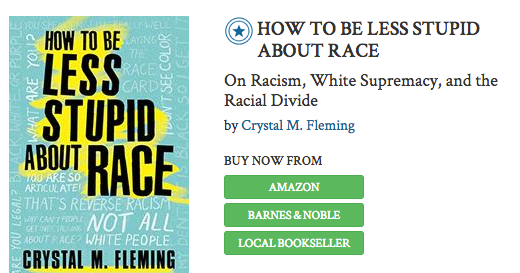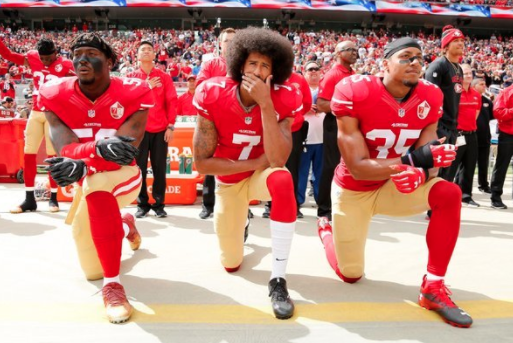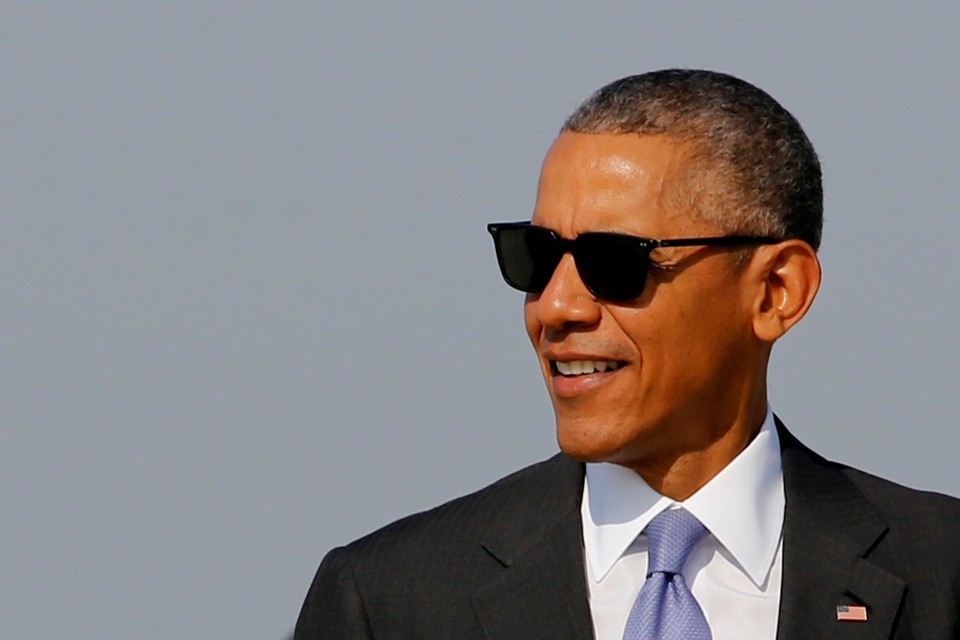 You may have heard the recent story of Russell Simmons’ endorsement and marketing of a “Harriet Tubman Sex Tape”, an astoundingly awful attempt at satire which instantly drew the formidable ire of concerned citizens across social media. The video is appalling for more reasons than I can summarize here — the contribution to rape culture, the denigration of Harriet Tubman’s monumental heroism, the disrespect of women broadly, African American women in particular and the enslaved ancestors of diasporic people everywhere. Truly, I could go on and on. It was that horrific.
You may have heard the recent story of Russell Simmons’ endorsement and marketing of a “Harriet Tubman Sex Tape”, an astoundingly awful attempt at satire which instantly drew the formidable ire of concerned citizens across social media. The video is appalling for more reasons than I can summarize here — the contribution to rape culture, the denigration of Harriet Tubman’s monumental heroism, the disrespect of women broadly, African American women in particular and the enslaved ancestors of diasporic people everywhere. Truly, I could go on and on. It was that horrific.
On August 14th 2013, the same night that the video was released on Youtube, I authored a Change.org petition which gathered over 1,000 signatures in less than 24 hours, demanding that Simmons remove and apologize for the video. After pressure from many corners, including the NAACP, Simmons did in fact pull the video and issue a (highly problematic) apology. The petition was covered in more than 100 media & online outlets. You can read about the video and the campaign against it on MSNBC, Washington Post and, even the Daily Mail.
I also did an interview with emPower Magazine that you can read here.
While I alluded to compassion and spirituality in the interview, I didn’t delve into the relationship between my outrage and my spiritual practice. In fact, my views on the importance of respecting our ancestors are inspired, in part, by Thich Nhat Hanh’s work on being a Buddhist and a person of color. In his fabulous book “We are One: Honoring Our Diversity, Celebrating our Connection”, he reflects on the significance of embracing not only our cultural heritage, but also our ancestry. This is also a theme he develops in this speech, given from Plum Village in 1997: “We Are the Continuation of Our Ancestors“. He states, in part:
“I always feel that I am the continuation of my ancestors. Every day I practice touching my ancestors. In my country every home has an altar for ancestors, blood ancestors and spiritual ancestors. An altar is just a table, but it is very important. You place that table in the central part of your house and you focus your attention on the table as the point of contact between you and your ancestors. Usually every morning we come and offer some incense to our ancestors. Our ancestors do not need to smell incense, but we want to light a stick of incense to our ancestors because the practice of lighting incense focuses our attention on the presence of our ancestors. During the time you strike the match, you light the stick of incense, you offer the incense on the table, you have an opportunity to touch your ancestors within yourself. You realize that your ancestors are always alive in you because you are the continuation of your ancestors.”
Now, in the interests of full disclosure, I should say that I do not have an altar for my ancestors in my home.. or anywhere else. But consciously honoring and remembering my inherent connection to all those who came before me has become, over the years, an increasingly important part of how I recognize and celebrate the Divine. As Thich Nhat Hanh states – the point is to focus attention on the presence of our ancestors. To honor our ancestors is to also honor the Self. Doing so requires our loving awareness.
That said, I don’t think it’s necessary to be a descendant of slaves to find offense in the video Russell Simmons’ media venture produced. There are many folks of diverse backgrounds – including white Americans – who shared my outrage and discontent. Truthfully, all it takes is wisdom, insight and compassion to respect the dignity of other human beings, those who are living now, and those who have passed on.
The challenge, I think, for all of us — and the vital importance of humanistic principles and enlightened spirituality — is to overcome the limitations of our experience and the boundaries we erect between “us” and “them”. In so doing, we consciously embrace our solidarity with the whole of humanity, past and present. When we demean each other, it is because we have a broken and incomplete understanding of ourselves. When we think we are defined by our ego – the limited idea of who we think we are – we are inexorably led to have a limited idea of the “others” we identify with. As conscious, compassionate people dedicated to making this world a more loving place, we must commit to living beyond our ego and our conditioning.
What does this have to do with Russell Simmons and his video? Well, first of all, I won’t even really touch the ridiculous contradictions inherent in the fact that he frames himself as a spokesperson for enlightenment, writing books on spirituality and tweeting about the Bhagavad Gita — while also calling the “comedic” portrayal of the rape of an enslaved American hero “the funniest thing” he’s ever seen. The point I’m making here is that fundamentally, Simmons’ misstep revealed a lack of awareness – an inability, in that particular moment, to fully recognize and honor the humanity of women generally, Harriet Tubman in particular, his own enslaved ancestors and survivors of sexual assault and rape. In one fell swoop, he denigrated a huge swath of humanity — and that kind of denigration can only happen when we allow ourselves to lapse into ignorance — ignorance about who we really are. If Russell Simmons had truly been in touch with the fullness of his own humanity, the incredible power of his own divinity, the enlightened consciousness of his interconnection with all living Beings, past and present, he could not have acted from such a place of profound disrespect.
I say this not as someone who knows Russell Simmons personally, but rather as someone who knows human nature, beginning with my own. I know that it is only possible for me to disrespect someone else when I am ignorant. And I also know that it is possible to grow in awareness and love, for myself and others, if my heart’s intention is to do so. For that reason, I sincerely hope that Russell Simmons – and indeed, all of us – use this moment to pause and reflect on how we can rise in consciousness.
In the updates to the petition, I included a number of resources for folks who want to learn more about the history of women, slavery, sexual trauma and violence against African-Americans. This was not just for his benefit – but mine as well. We all have a lot to learn about these issues. But I must say . . . book knowledge can only go so far. And lots of folks with less education, less life experience and less exposure to social and cultural capital than Russell Simmons knew that video was in incredibly poor taste.
Beyond building knowledge, I also encouraged Simmons to engage in face-to-face discussion and dialogue with women and men who have survived rape. I know in my own experience, these kinds of conversations have been life changing. Having people trust me enough to share their stories of surviving and overcoming sexual assault has been an incredible gift that pushed me to grow and become more compassionate and thoughtful about a social reality that affects nearly 1 in 3 women. The fact is, I have loved women who have been raped. And I have loved men who have experienced sexual trauma. We are all connected to survivors of rape, whether in our immediate circles or in our family trees. We must all do more to practice love and care in how we think about this issue.
In terms of moving forward, I include below a list of some of the suggested readings produced in consultation with black women scholars (especially Dr. Koritha Mitchell (@ProfKori) and Dr. Christina Sharpe (@hystericalblkns). These are just a few excellent sources we have in scholarship on women, race, slavery, sexual assault and post-slavery violence against blacks.
– Angela Davis (1972) “Reflections on the Black Woman’s Role in the Community of Slaves”
-Crystal Feimster (2011): “Southern Horrors: Women and the Politics of Rape and Lynching”
-Saidiya Hartman (1996): “Seduction and the Ruses of Power”
-Koritha Mitchell (2012): “Living with Lynching:African American Lynching Plays, Performance and Citizenship”
-Dorothy Roberts (1997): “Killing the black body : Race, Reproduction, and the Meaning of Liberty
-Christina Sharpe (2010): “Monstrous Intimacies: Making Post-Slavery Subjects”
Additionally, you might consider reading Ida B. Wells’ pamphlets as well as “Six Women Slave Narratives”.
Finally, I should say that this is all a bit surreal for me, given that 1) I’ve never done a change.org petition before and 2) the actual subject of my scholarship is the way in which folks throughout the diaspora interpret the history and legacies of Atlantic slavery. Right now I’m working on a book that takes stock of recent commemorative movements in France that have drawn greater attention to French involvement in the slave trade while also transforming the contemporary meanings of blackness in French politics and culture. Some of my work also explores how African-Americans imagine the history of slavery. You can read more about these projects here.
Interestingly, I didn’t begin this line of work with strong opinions about whether or how the history of slavery should be represented. When I went to Paris years ago to interview activists, officials and ordinary people of African descent, I did so with a very open mind about the relative merits of various ways of relating (or not relating) to the past. In fact, I still do make a practice of understanding – with some degree of detachment – the various frames people use for underscoring the relevance or irrelevance of slavery in our contemporary moment. As a social scientist, my job is to unpack not only the different perspectives articulated by social actors, but also the conditions of possibility that shape those perspectives as well as the broader consequences of those views for the way folks see themselves in relationship to society. In order to do a good job of that, I need to be attentive to how my own positionality shapes my scholarship — but I cannot be overly invested in a particular view.
When I began this work, I was not deeply spiritual, nor was I particularly interested in honoring my ancestors. But I was deeply interested in exploring how other people in the diaspora grappled with the intersecting stigmas of contemporary anti-black racism and the historical legacies of chattel slavery. As I had not yet come to fully embrace any particular stance, I wanted to use my fieldwork in France to not only generate scholarship about contemporary French politics and practices of blackness in Europe, but also to produce knowledge about the range of logics people draw upon when trying to make sense of history and its impact on the present. In the process, I eventually came to define and embrace my own views on this question, even as I held firm to my desire to understand and respect the perspectives of the people I interviewed, even – and especially – when I disagree with their claims.
In any case, when I started my fieldwork in 2008 – as an observer in a foreign country with the pretense of detachment – I would never have predicted that I’d one day start a petition to protect the memory of an enslaved American heroine, or write blog posts about the spiritual importance of honoring our ancestors. How interesting it is to come full circle in this way.








